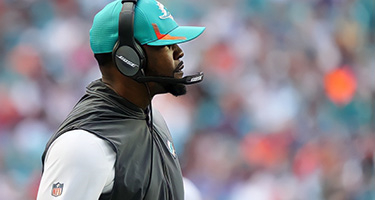Discrimination in the workplace can take many forms and present itself in countless ways. Many people mistakenly believe that discrimination is not actionable until the discrimination has had a financial impact. A recent Supreme Judicial Court decision clarified that this is not true under Massachusetts’ anti-discrimination statute, Chapter 151B. In the recent case of Yee v. Massachusetts State Police, the Court considered what constitutes an “adverse employment action” and reinforced that discrimination claims are about more than just money.
The Law
Chapter 151B makes it unlawful for any employer, on the basis of “race, color, religious creed, national origin, sex, gender identity, sexual orientation…genetic information, ancestry or status as a veteran,” to discriminate “in compensation or in terms, conditions or privileges of employment.”
The Case
In Yee, the Court addresses whether the denial of Officer Yee’s request for a lateral transfer to a specific unit—one generally considered a preferred unit/position—could be unlawfully discriminatory. A Superior Court judge had granted the Massachusetts State Police’s motion for summary judgement, concluding the plaintiff had not met this burden of showing that the denial of his request for a lateral transfer was an "adverse employment action." The Supreme Judicial Court reversed and remanded the earlier decision, stating that because “there are material differences between [the] two positions in the opportunity to earn compensation, or in the terms, conditions, or privileges of employment, the failure to grant a lateral transfer to the preferred position may constitute an adverse employment action under c. 151B.”
The Court's Ruling and Impact
The Court’s discussion regarding “terms, conditions or privileges of employment” is important. In its ruling, the Court, for the first time, elaborated on what each of those words mean.
For example:
- “Terms of employment” includes “personnel policies…or contractual provisions that may be either explicit or implied.”
- “‘Conditions of employment’ may … encompass the general environment, atmosphere, or quality of the workplace.”
- “A ‘privilege of employment’ is an unmandated benefit that, ‘though not a contractual right of employment,’ is nonetheless customarily provided by an employer…[and] may not be doled out in a discriminatory fashion.”
Additionally, whether a particular employment action is “adverse” requires a case-by-case analysis, viewed from the perspective of a reasonable person in the employee’s position. The Court offered the example that a “transfer from an evening to a day shift may be an adverse employment action to one employee, but be welcomed by another.” The ruling enforces that, because these cases involve genuine issues of material fact, their merits should be evaluated by a jury at trial, and not prematurely disposed of by a judge.
The bottom line is that discrimination is about more than money. Whether or not a particular employment action violates Chapter 151B is a fact-intensive inquiry that requires careful, case-specific examination. Additionally, the time within which to pursue claims can be very short. Retaining counsel sooner rather than later can help you protect and preserve your rights.
------------------
Brian J. MacDonough concentrates his practice in employment law and executive advocacy. He handles a wide range of matters, including contract negotiation and enforcement, discrimination, whistleblowing, wage and hour issues, and wrongful termination. In particular, Brian counsels and represents executives and professionals regarding sophisticated employment and compensation matters, including employment agreements, change of control agreements, equity and deferred compensation vehicles, non-competition and other restrictive covenants, severance /separation terms, and transition agreements.

























